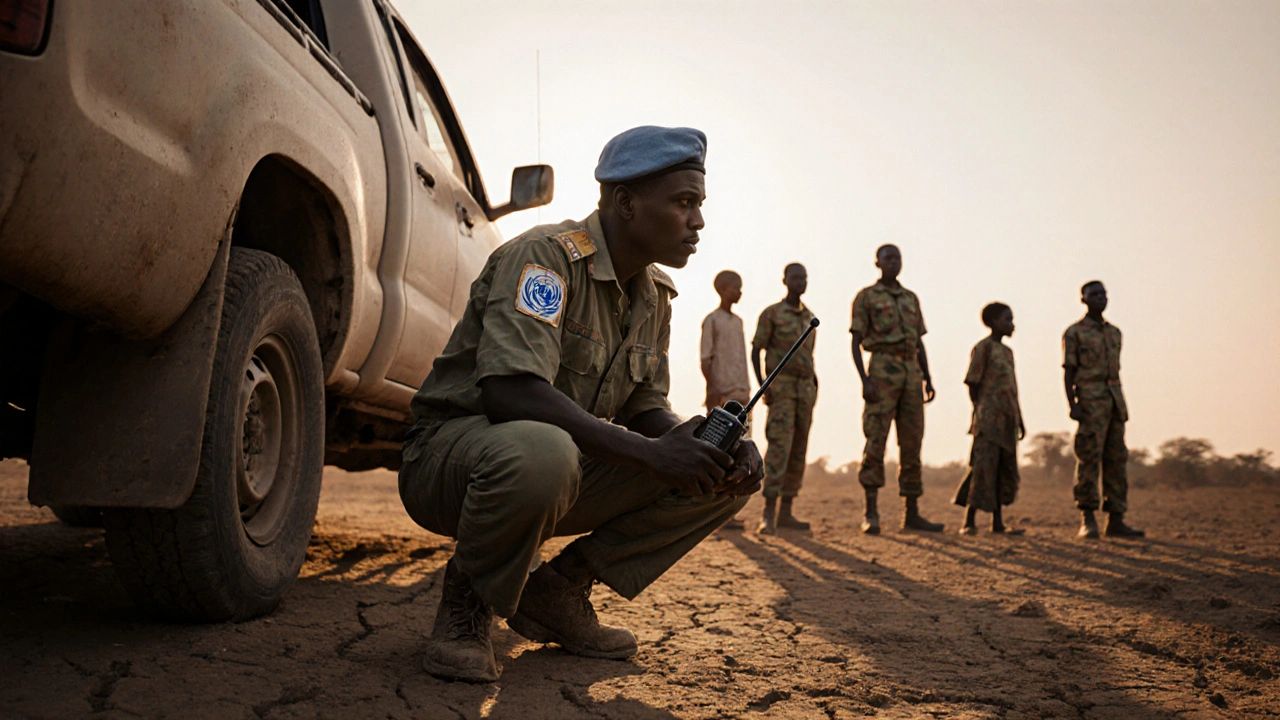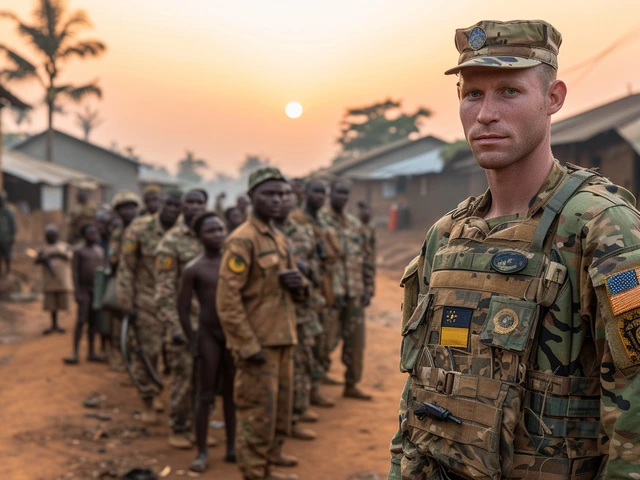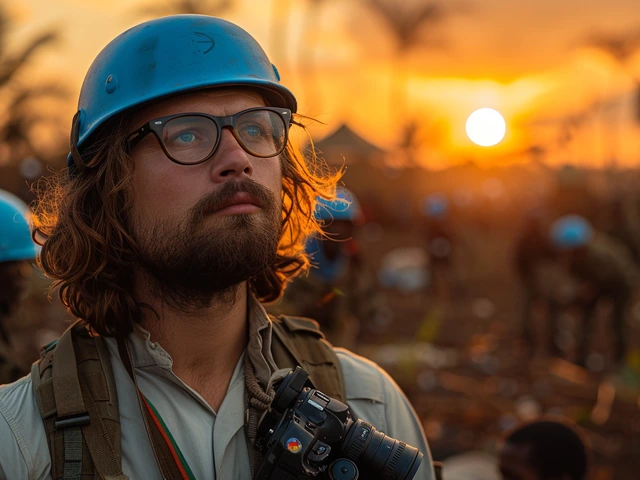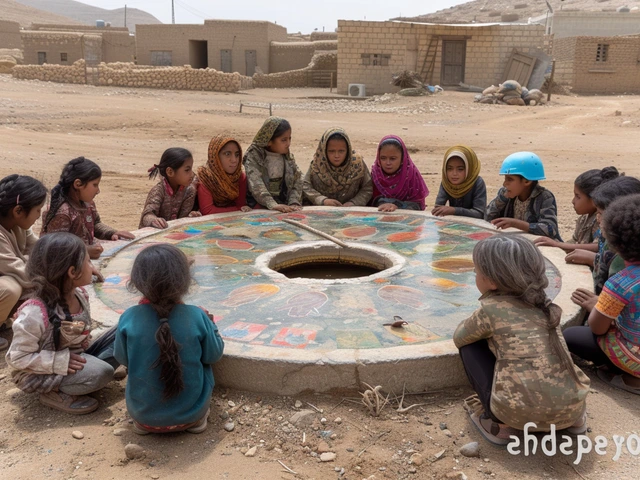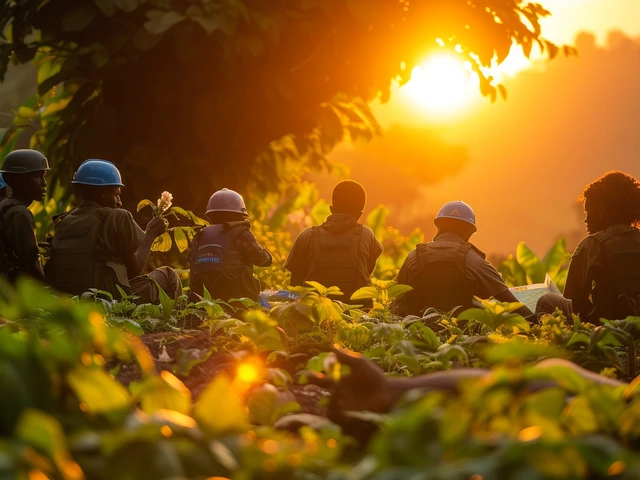Peacekeeping Staff Cost Calculator
Salary Comparison
In most conflict zones, local staff need at least $650/month to cover basic necessities. At this rate:
Many work multiple jobs to survive. For example:
- 1 UN translator in Nairobi earns $380/month - less than rent
- 1 driver in Lebanon works night shifts to afford his daughter's asthma meds
When you think of peacekeeping, you probably picture soldiers in blue helmets standing between armed groups. But that’s just the tip of the iceberg. Behind every successful peace mission are dozens of unseen heroes-drivers who risk their lives to deliver water, medics who treat patients under fire, translators who bridge languages no one else speaks, and logisticians who keep generators running in 120-degree heat. These are the people who make peacekeeping work, and yet their names never make the headlines.
The Real Backbone of Peacekeeping
The United Nations deploys over 60,000 peacekeepers across 12 active missions. Only about 30% are uniformed military personnel. The rest? Civilian staff. These include engineers who rebuild bridges destroyed in battle, gender advisors who help survivors of sexual violence access care, and human rights monitors who document abuses while living under constant threat. In South Sudan, a single peacekeeping mission employs more than 1,200 local staff-drivers, cooks, cleaners, and interpreters-while only 800 international troops are stationed there.
Local staff aren’t just support-they’re the eyes and ears on the ground. They know the tribal dynamics, the hidden roads, the rumors that precede violence. In the Democratic Republic of Congo, a local interpreter once warned a UN team about an ambush three hours before it happened. That warning saved 17 lives. Yet, when the mission received a medal for "successful intelligence gathering," the interpreter’s name wasn’t on it.
They Work Without Body Armor
International peacekeepers get body armor, armored vehicles, and secure compounds. Local staff? They ride in unmarked pickups, carry supplies on foot through minefields, and sleep in rented rooms near conflict hotspots. In Mali, a UN logistics officer was killed when his truck hit a roadside bomb. He wasn’t wearing a helmet. He wasn’t armed. He was just trying to get medicine to a clinic 40 kilometers away.
Women peacekeepers face even harsher conditions. In the Central African Republic, female medical staff have been attacked while treating rape survivors. Some have been threatened with rape themselves. Yet they keep showing up. One nurse, only 24 years old, has been working in a displacement camp for six years. She’s the only person who speaks the local dialect and can calm terrified children. She doesn’t get hazard pay. She doesn’t get a pension. But she still wakes up at 5 a.m. every day.
The Silent Cost of Peace
Peacekeeping isn’t just dangerous-it’s emotionally crushing. In Haiti, a UN psychologist working with survivors of gang violence told me, "You start to forget what silence feels like. The screams never really leave your ears." Many staff develop PTSD and leave without ever seeking help. The UN offers mental health services, but in places like Sudan, there’s no internet, no privacy, and no time. Staff often bottle it up.
And then there’s the financial cost. Most local staff earn less than $500 a month. In Nairobi, where the cost of living is high, a UN translator earns $380. That’s less than the average rent for a one-bedroom apartment. Many work two jobs. One driver in Lebanon picks up passengers at night after his UN shift ends. He does it to pay for his daughter’s asthma medication.
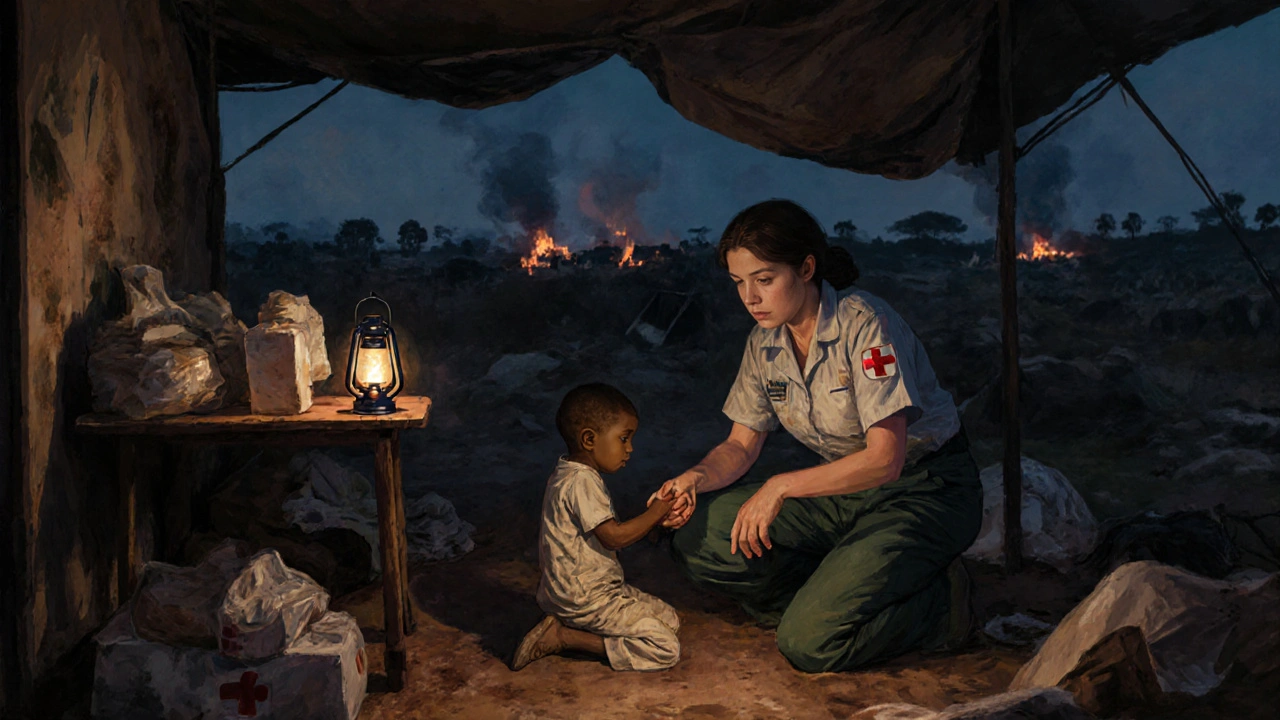
Who Gets Left Behind
When missions end, international staff go home. They get resettlement packages, counseling, and job placement help. Local staff? They’re often abandoned. In Timor-Leste, after a 13-year UN mission closed, over 2,000 local employees were let go with no severance. Many had worked there since they were teenagers. Some had no education beyond primary school. No one helped them find work. A former interpreter now sells vegetables at a roadside stall. He still keeps his UN badge in a plastic bag, tucked inside his wallet.
The UN admits this is a problem. In 2023, it launched a new policy promising better exit support for local staff. But implementation is patchy. In one mission, a staff member received a letter saying he was "eligible for retraining"-but the training center was 300 kilometers away, and there was no bus service. He never went.
Why They Stay
So why do they keep doing it?
"Because someone has to," says Fatima, a community liaison officer in Somalia. She’s been working with peacekeepers for 11 years. Her brother was killed in a militia attack. Her nephew was kidnapped. She could have left. She could have moved to Kenya. But she stayed. "I know the people here. I know what peace looks like. It’s not a treaty. It’s my neighbor sharing food with the family who lost their home. It’s the school reopening. That’s what I fight for. Not a medal. Not a paycheck. Just peace."
That’s the truth no one talks about. Peacekeeping isn’t about soldiers. It’s about ordinary people choosing to stand in the middle of chaos-not because they’re heroes, but because they have no other choice.
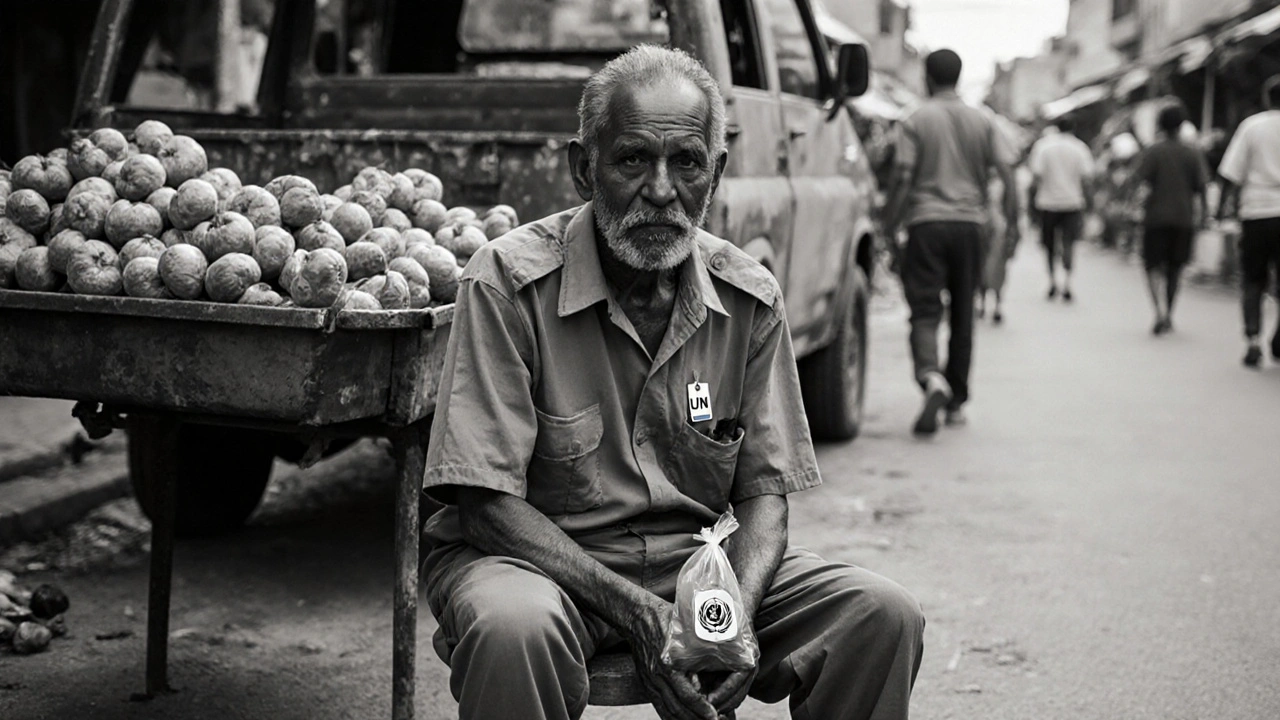
What Needs to Change
Real change starts with recognition. Local staff should be paid fairly, given pensions, and offered mental health support that’s actually accessible. They should be included in mission planning-not just as workers, but as advisors. Their knowledge saves lives. Their voices should shape policy.
Donors and governments need to fund local staffing properly. Right now, most peacekeeping budgets go to military equipment and international salaries. Less than 8% goes to local staff benefits. That’s not just unfair-it’s unsustainable. Missions fail when local staff leave. And they leave when they’re treated like replaceable parts.
And we, the public, need to stop seeing peacekeeping as a military operation. It’s a human one. The people holding the water tanks, translating the ceasefire talks, walking the roads with vaccines-they’re the real peacekeepers. They don’t wear blue helmets. But they’re the ones who make the peace last.
Who are the unseen heroes in peacekeeping missions?
The unseen heroes include local drivers, interpreters, medics, logisticians, gender advisors, and community liaisons who work on the ground in conflict zones. They make up over 70% of peacekeeping personnel but rarely get public recognition. These individuals deliver supplies, translate critical communications, treat wounded civilians, and navigate complex local politics-all while facing the same dangers as uniformed troops, often without proper protection or pay.
Why are local staff more important than international troops in peacekeeping?
Local staff understand the language, culture, and history of the region in ways international troops never can. They know who to trust, which roads are safe, and when rumors signal violence. In many missions, they’re the only ones who can get access to remote villages or negotiate with armed groups. Their presence builds trust with communities. Without them, peacekeepers would be blind, ineffective, and often targeted.
Do peacekeepers get paid fairly?
International peacekeepers are paid by their home governments and often earn salaries comparable to their military roles. Local staff, however, are paid by the UN and typically earn between $300 and $800 a month-far below the cost of living in many mission areas. In places like Nairobi or Nairobi, this means many work multiple jobs or go without essentials. Fair pay isn’t just ethical-it’s essential for mission success.
What happens to local staff when peacekeeping missions end?
When missions close, most local staff are let go with no severance, no retraining, and no job placement. Some have worked for over a decade and are left with no income or skills for civilian jobs. While the UN has introduced new exit policies, implementation is inconsistent. In several countries, former staff have ended up selling food on the street or relying on charity. Their contributions to peace are forgotten the moment the UN flag comes down.
How can people help support peacekeeping heroes?
You can support organizations that advocate for local peacekeepers, like the Peacekeeping Heroes Project or the Local Staff Association. Contact your government representatives and demand that aid budgets prioritize fair wages and exit support for local staff. Share their stories. Demand that media outlets highlight their work, not just the soldiers. Real change starts when people stop seeing peacekeeping as a military mission-and start seeing it as a human one.
Final Thought: Peace Has a Face
Peace isn’t declared in halls of power. It’s built in dusty villages, in clinics with no electricity, in conversations between strangers who used to be enemies. The people who make that happen don’t wear uniforms. They don’t get parades. They don’t get their faces on posters. But without them, every peace agreement is just a piece of paper. The real heroes of peacekeeping aren’t the ones you see on TV. They’re the ones you never hear about. And they’re still showing up-every single day.

